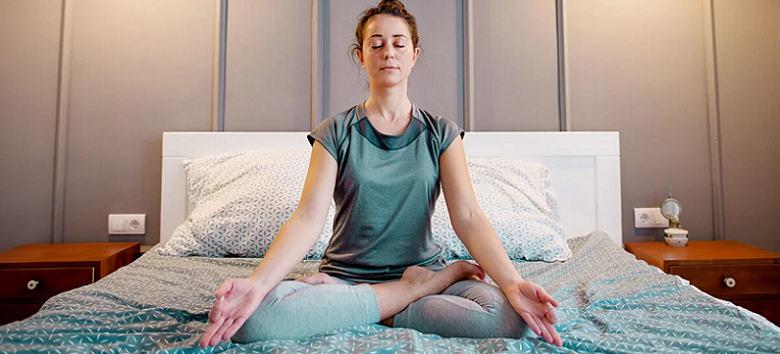For night owls, adjusting to the morning-oriented world of business requires a combination of healthy sleep habits, physical activity, mindful food choices, and a supportive community. By following this articles tips, and being patient and persistent, you’ll be able to successfully make the transition and thrive in the business world.
Why the Business World Is Morning-Oriented
The business world is considered to be morning-oriented for several reasons, including tradition, productivity, scheduling constraints, and commuting considerations. The traditional workday has historically been structured around a 9-5 schedule, with most employees starting work in the morning and ending in the late afternoon or early evening.
Studies have also shown that people tend to be more productive and alert in the mornings, making it an efficient time for businesses to schedule important tasks and meetings. Additionally, coordinating schedules with clients, suppliers, and other stakeholders is often easier in the mornings and starting work earlier can help employees avoid peak hour traffic. The business world is often considered to be morning-oriented for several reasons:
- Tradition: The traditional workday has historically been structured around a 9-5 schedule, with most employees starting work in the morning and ending in the late afternoon or early evening. This tradition has carried over into modern times and is still the standard for many businesses.
- Productivity: Studies have shown that people tend to be more productive and alert in the mornings, which can make it more efficient for businesses to schedule important tasks and meetings during this time.
- Scheduling constraints: Many businesses need to coordinate schedules with clients, suppliers, and other stakeholders, and scheduling appointments and meetings in the mornings can minimize the likelihood of conflicts with other commitments.
- Commuting: Commuting during peak hours can be more challenging, and starting work earlier in the morning can help employees avoid the worst of the rush-hour traffic.
The business world is often considered to be morning-oriented due to a combination of tradition, productivity, scheduling constraints, and commuting considerations. While these factors may make it challenging for night owls, with effort and determination, it is possible for them to successfully adjust and thrive in the business world.

Is It Possible for a Night Owl to Become an Early Bird?
Becoming a morning person is a gradual process that requires effort, patience, and a willingness to change your habits. To start, it’s important to establish a consistent bedtime so that you can get enough sleep each night. This will help you feel more rested and ready to face the day. Gradually adjust your wake-up time by setting your alarm 15 minutes earlier each day until you reach your desired time. This gradual adjustment will make it easier for your body to adjust to the change.
In order to prepare for sleep and create a relaxing bedtime routine, you can try activities like reading, meditating, taking a warm bath, or listening to calming music. Limit your exposure to screens before bed, as the blue light emitted from them can interfere with sleep and make it harder to fall asleep.
Once you have established a consistent wake-up time, create a morning routine to help you start your day on a positive note. This could include exercise, meditation, a healthy breakfast, or a positive affirmation. You can also find an accountability partner who is also working on becoming a morning person and support each other through the process. Reward yourself for making progress and sticking to your routine, and be patient as it will take time and effort to become a morning person.
In conclusion, becoming a morning person involves establishing healthy sleep habits, creating a relaxing bedtime and morning routine, limiting exposure to screens, finding support, and being patient. By following these tips, you’ll be on your way to becoming a happier, more productive morning person.
Tips and Techniques for Becoming a Morning Person
Becoming a morning person can be a challenging process, but with some effort and patience, it can be done. Here are some tips to help you make the transition:
Set a Consistent Bedtime to Rise Early Daily
Start by setting a consistent bedtime: In order to become a morning person, you need to make sure you are getting enough sleep. Set a consistent bedtime and stick to it, even on weekends. Aim for 7-9 hours of sleep each night. Setting a consistent bedtime is a crucial step for night owls who want to become morning people. Here’s how it helps:
- Regulates Circadian Rhythms: Our bodies have an internal clock, known as the circadian rhythm, which regulates our sleep and waking patterns. By establishing a consistent bedtime, the body can become acclimated to a set sleep schedule, making it easier to fall asleep and wake up at the same time each day.
- Improves Sleep Quality: A consistent bedtime helps ensure that you are getting enough sleep each night, allowing you to feel refreshed and ready to tackle the day ahead. Good sleep hygiene practices, such as limiting exposure to screens before bed and creating a relaxing bedtime routine, can also help improve the quality of your sleep.
- Builds Momentum: Building a consistent sleep pattern takes time, but once you establish a routine, your body will naturally adjust, making it easier to wake up in the morning and maintain your new schedule.
- Helps Manage Energy Levels: By getting enough sleep each night and establishing a consistent sleep schedule, you can manage your energy levels more effectively, helping you feel more awake and alert in the mornings.

Gradually Adjust Your Wake-Up Time to Ease Into Waking Early
Gradually adjusting your wake-up time is a gradual and effective approach for night owls to become morning people. Here’s how it works:
- Gradual Change: Gradually adjusting your wake-up time allows your body to gradually adjust to the change, reducing the risk of feelings of grogginess and fatigue. This gradual transition is easier on the body and less likely to cause discomfort.
- Minimizes Shock to the System: Suddenly waking up earlier can be a shock to the system, making it difficult to adjust and causing feelings of fatigue and grogginess. Gradually adjusting your wake-up time reduces this shock and makes the transition smoother and more manageable.
- Improves Sleep Quality: Gradually adjusting your wake-up time also helps improve the quality of your sleep. By gradually transitioning to an earlier bedtime, you are allowing yourself to get enough sleep each night, which can help you feel refreshed and ready to tackle the day ahead.
- Builds Momentum: Gradually adjusting your wake-up time also helps build momentum, making it easier to maintain your new schedule once you have fully transitioned.
Limit Night Time Screen Exposure to Help You Fall Asleep
Limiting nighttime screen exposure is a crucial step for night owls who want to become morning people. Here’s how it helps:
- Regulates Circadian Rhythms: The blue light emitted by screens can interfere with the body’s circadian rhythm, making it harder to fall asleep and wake up at the desired time. By limiting nighttime screen exposure, you can help regulate your sleep and waking patterns, making it easier to become a morning person.
- Improves Sleep Quality: The blue light from screens can also interfere with the production of melatonin, a hormone that regulates sleep. By limiting screen exposure before bedtime, you can help ensure that your body produces enough melatonin, allowing you to fall asleep faster and enjoy better sleep quality.
- Reduces Stimulation: Screens can also be stimulating, making it difficult to fall asleep, especially for night owls who are already prone to staying up late. By limiting screen exposure before bedtime, you can reduce stimulation, making it easier to wind down and fall asleep.
- Increases Mindfulness: By limiting screen exposure, you can also increase mindfulness and reduce the stress and anxiety that can interfere with sleep. This mindfulness can help you better regulate your sleep patterns and increase the likelihood of becoming a morning person.

Create a Bedtime Routine to Wind Down and Get Proper Sleep
Having a bedtime routine is an important step for night owls who want to become morning people. Here’s how it helps:
- Improves Sleep Consistency: A bedtime routine helps establish a consistent sleep schedule, allowing the body to regulate its circadian rhythms and make it easier to fall asleep and wake up at the desired time.
- Promotes Relaxation: A bedtime routine can include activities that promote relaxation, such as reading, meditating, or taking a warm bath. These activities can help calm the mind and reduce stress and anxiety, making it easier to fall asleep and get the restful sleep you need.
- Reduces Screen Time: A bedtime routine can also help reduce nighttime screen exposure, which as discussed earlier, can interfere with the body’s circadian rhythm and quality of sleep. By including activities that don’t involve screens, you can further improve your sleep and increase the likelihood of becoming a morning person.
- Establishes a Predictable Schedule: Having a bedtime routine also helps establish a predictable sleep schedule, making it easier for the body to get into a routine and become a morning person.

Create a Morning Routine to Make Early Wake-Up Easier
Having a morning routine is an important step for night owls who want to become morning people. Here’s how it helps:
- Eases the Transition: A morning routine can help ease the transition from nighttime to daytime by providing structure and making the morning feel more manageable. This can make it easier to get up and start the day, even if you’re not naturally a morning person.
- Sets the Tone for the Day: A morning routine can help set the tone for the rest of the day by helping you start the day with a sense of purpose and direction. This can help you feel more productive and motivated, making it easier to thrive in a morning-oriented world.
- Boosts Energy and Productivity: A morning routine can include activities that boost energy and productivity, such as exercise, meditation, or a healthy breakfast. These activities can help you feel refreshed, alert, and ready to tackle the day, even if you’re not naturally a morning person.
- Increases Mindfulness: A morning routine can also help increase mindfulness and reduce stress and anxiety, making it easier to face the challenges of the day with a clear and focused mind.
Reward Yourself for Your Progress in Rising Early
Rewarding yourself for sticking to a routine is a powerful motivator that can help night owls become morning people. Here’s how it works:
- Provides Positive Reinforcement: Rewarding yourself for sticking to a routine provides positive reinforcement and reinforces the desired behavior, making it more likely that you will continue to stick to your new routine.
- Increases Motivation: By having a reward to look forward to, you can increase your motivation to stick to your new routine, making it easier to make the transition from night owl to morning person.
- Helps Overcome Challenges: Making a significant change, such as transitioning from a night owl to a morning person, can be challenging. Rewarding yourself for sticking to your routine can help you stay motivated and overcome any obstacles that may arise along the way.
- Celebrates Success: Rewarding yourself for sticking to your routine also helps you celebrate your success, which can be especially important when making a big change like becoming a morning person.

